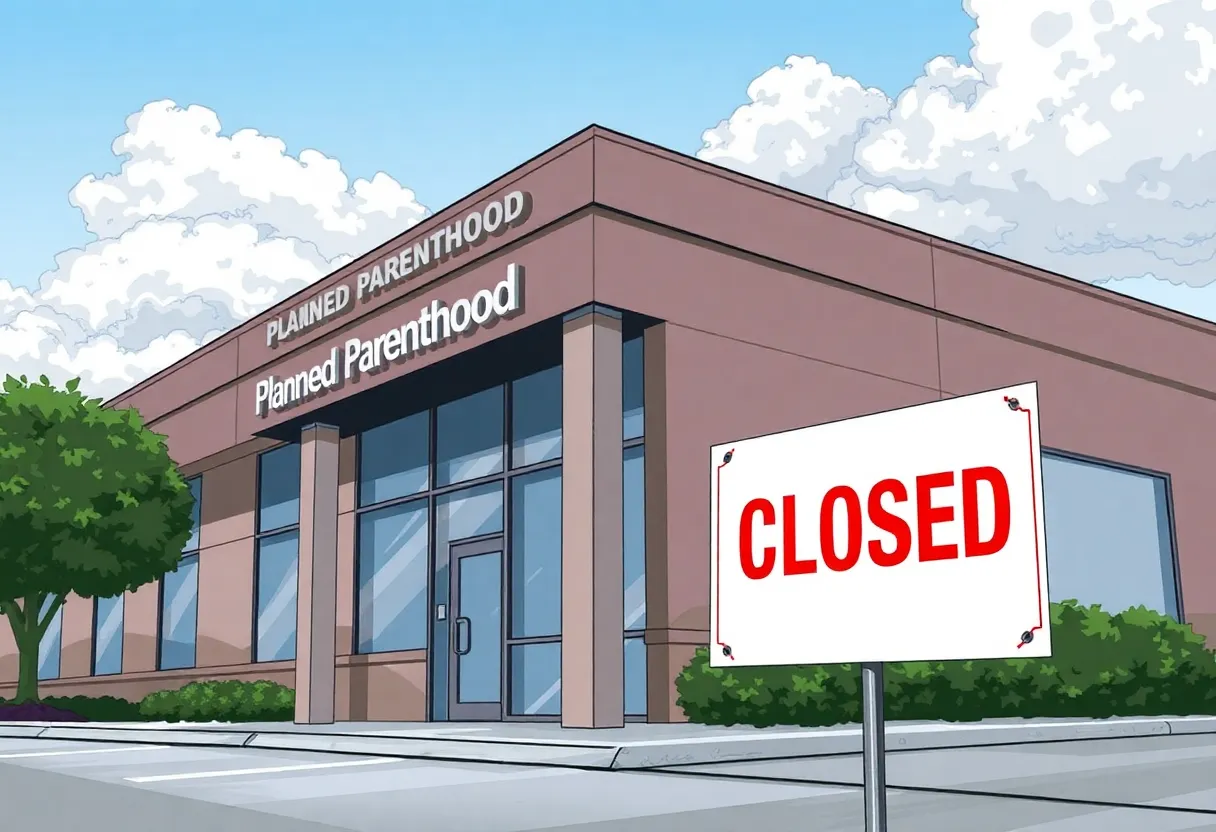News Summary
Planned Parenthood Gulf Coast has shut down its Houston facility, marking the closure of the largest abortion site in the western hemisphere. This closure follows stringent new Texas abortion laws and a drastic decrease in facility usage due to rising costs and staffing shortages. While the pro-life community considers this a major victory, concerns remain about access to abortion pills available online. The facility’s closure reflects broader shifts in the national abortion debate amid ongoing legal challenges and changing regulations.
Houston – Planned Parenthood Gulf Coast has officially closed its Houston location, marking the end of the largest abortion facility in the western hemisphere as of September 30. The decision to shut down the facility, which had been a prominent site for abortion procedures, has been hailed by pro-life activists as a substantial victory in their ongoing battle against abortion access.
The move comes amidst changing dynamics in the abortion landscape, particularly after Texas implemented stringent abortion laws. Following this legislative shift, the Houston location transitioned to primarily functioning as an abortion referral center, helping women find services out of state rather than providing procedures on-site. This facility’s closure signals a notable change in tactics for the abortion industry as anti-abortion groups continue to push back against their operations.
On July 25, Planned Parenthood announced it would close two clinics in Houston: the large facility on I-45 and a smaller center on Southwest. Remaining open will be four other Planned Parenthood locations throughout the city—Northville, Northwest, Spring, and Stafford—following a merger with another affiliate. Additionally, while the Tyler clinic was closed in July, Planned Parenthood still operates clinics in various Texas cities, including Austin, Dallas, El Paso, Fort Worth, San Antonio, and Lubbock.
The Houston facility had gained notoriety for its involvement in undercover videos that suggested the sale of aborted baby body parts, drawing significant scrutiny and criticism over the years. As laws restricting abortion access intensified, facility use declined dramatically, ultimately forcing Planned Parenthood to curtail operations due to rising costs, staffing shortages, and low reimbursement rates from government support.
Although the Houston location is now closed, the abortion debate in the U.S. continues, highlighted by the increasing availability of abortion pills sold online in all 50 states. Despite the reduction of brick-and-mortar abortion clinics, these mail-order options provide a significant challenge to pro-life advocates, as access to abortion remains a contentious issue, particularly in states with less restrictive laws.
The recently enacted Woman and Child Protection Act in Texas, championed by Governor Abbott, allows Texans to pursue legal action against abortion pill companies involved in illicit practices. Nevertheless, reports indicate that acquiring abortion pills in Texas remains relatively easy, raising concerns about the implications for women seeking reproductive health care.
As the largest abortion facility in Houston is now permanently closed, pro-life supporters view this outcome as a symbolic victory in their efforts to advocate for unborn lives. Former Planned Parenthood clinic director Abby Johnson described the closure and similar trends across the country as indicative of pro-life successes, as over 20 clinics nationwide have shut down recently due to a combination of financial pressures and legislative changes aimed at restricting abortion access.
Despite this progress, the pro-life community remains aware of the continuing challenges ahead, particularly with the rise of online abortion options that could maintain access to abortion services even in tighter regulatory environments. Advocates emphasize the need for ongoing vigilance as states navigate this rapidly changing landscape with different regulations in place regarding abortion access.
In conclusion, the closure of Houston’s Planned Parenthood Gulf Coast facility serves as a reflection of broader shifts in the abortion debate across the United States, highlighting a critical juncture where state laws significantly influence the operational viability of abortion services while the accessibility of abortion pills challenges the pro-life movement moving forward.
Deeper Dive: News & Info About This Topic
HERE Resources
Next Level Innovates to Tackle Rising Healthcare Costs in Texas
Additional Resources
- Texas Right to Life
- Houston Chronicle
- Catholic News Agency
- ABC 13
- Google Search: Planned Parenthood closure Houston

Author: STAFF HERE HOUSTON TX WRITER
The HOUSTON STAFF WRITER represents the experienced team at HEREHouston.com, your go-to source for actionable local news and information in Houston, Harris County, and beyond. Specializing in "news you can use," we cover essential topics like product reviews for personal and business needs, local business directories, politics, real estate trends, neighborhood insights, and state news affecting the area—with deep expertise drawn from years of dedicated reporting and strong community input, including local press releases and business updates. We deliver top reporting on high-value events such as Houston Livestock Show and Rodeo, Art Car Parade, and Chevron Houston Marathon. Our coverage extends to key organizations like the Greater Houston Partnership and Houston Area Urban League, plus leading businesses in energy and healthcare that power the local economy such as ExxonMobil, Schlumberger, and Houston Methodist. As part of the broader HERE network, including HEREAustinTX.com, HERECollegeStation.com, HEREDallas.com, and HERESanAntonio.com, we provide comprehensive, credible insights into Texas's dynamic landscape.





